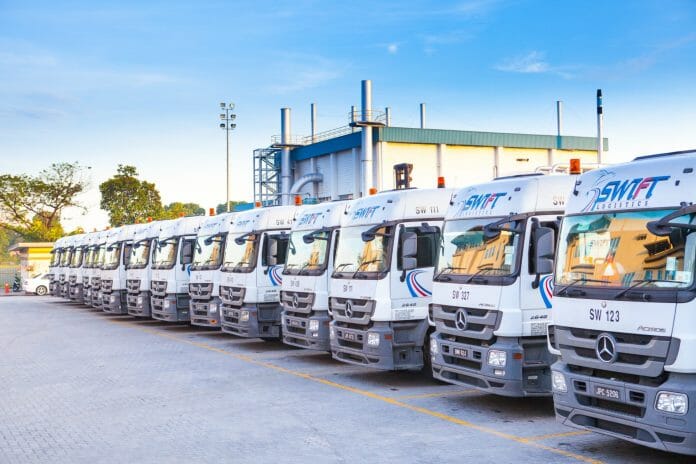Quarter one financial year 2023 core net profit for Swift Haulage (SWIFT) came below expectations at only 17% and 18% of Kenanga Research (Kenanga)’s full-year forecast and the full-year consensus estimate, respectively.
The variance against their forecast came largely from additional staff costs incurred to support its fleet and warehouse expansion. Year-on-year (YoY), quarter one financial year 2023 revenue grew 6% driven by the economy reopening, increased transportation activities for petrochemical products, particularly for the Petronas group of companies, and a strong gateway volume on the back of robust
exports by local manufacturers spurred by RM weakness.
However, core net profit declined by 27% due to higher operating expenses stemming largely from the expansion of its workforce as mentioned, and a higher effective tax rate of 20.0%.
Quarter-on-quarter (QoQ), quarter one financial year 2023 revenue rose 3% driven by local festivities, resulting in stronger demand for container haulage and land transportation. Increased movement of goods during the local festivities resulted in less demand for its warehousing and container depot and freight forwarding business.
Core net profit fell 11% due to higher operating expenses as aforementioned. Still in expansion mode. SWIFT has completed the expansion of its warehouses in Tebrau, Seberang Prai, and is building a warehouse in Port Klang Free Zone, as well as commenced warehouse management and transportation services in Pengerang for Petronas.
It is in the midst of expanding its cold chain warehouse in Sabah, Westports’ on-dock depot, a warehouse in Mak Mandin, Penang, Pulau Indah, Selangor, and the biggest green logistics hub in Asia under associate GVL.
“We still like SWIFT for its leading position in the Malaysia haulage market commanding close to 10% share, its value-adding integrated offerings resulting in a superior pre-tax profit margin of 10% compared to the industry average of 4%, and the tremendous growth potential of its warehousing business, riding on the booming domestic e-commerce,” said Kenanga.
Risks identified by Kenanga include sustained high fuel cost, global recession hurting the demand for transportation service, and
delays in its primary warehousing expansion plan.









